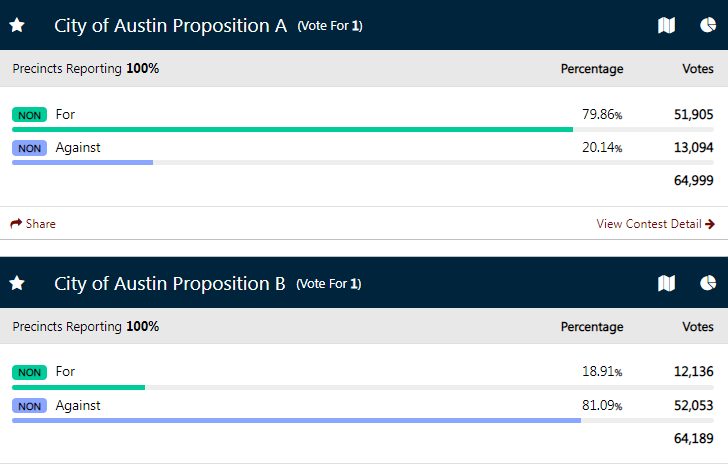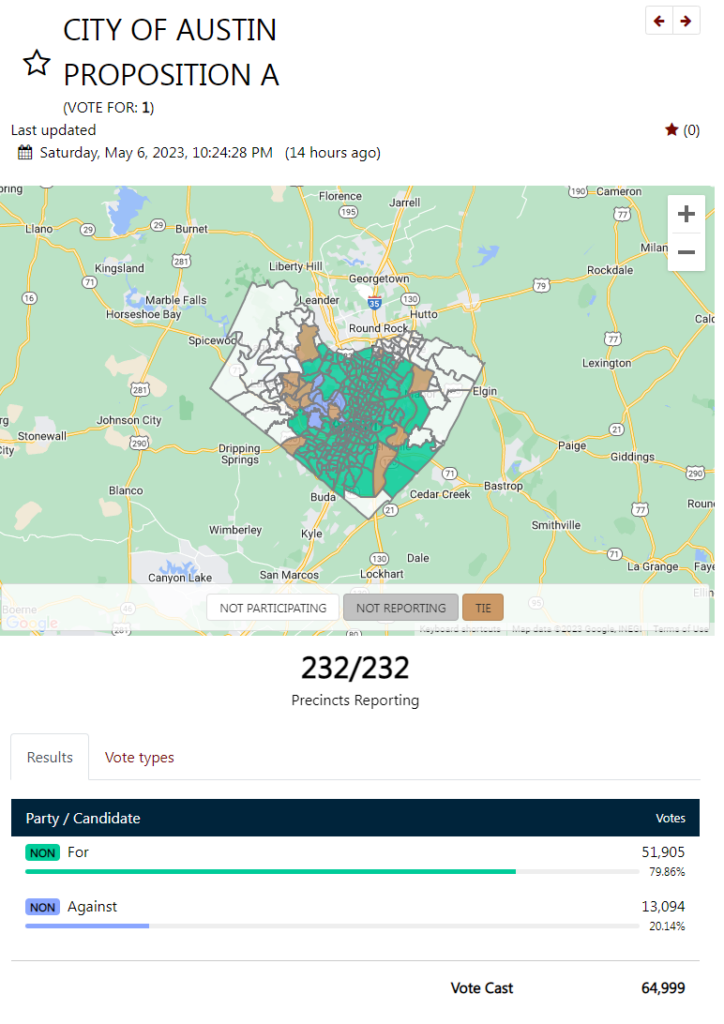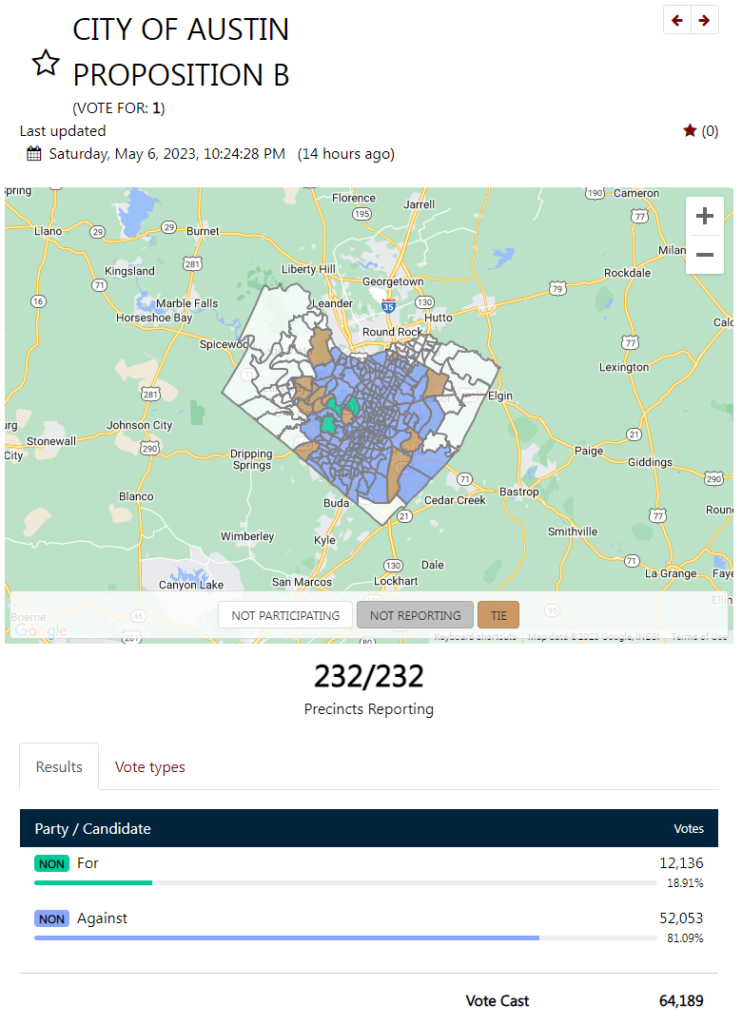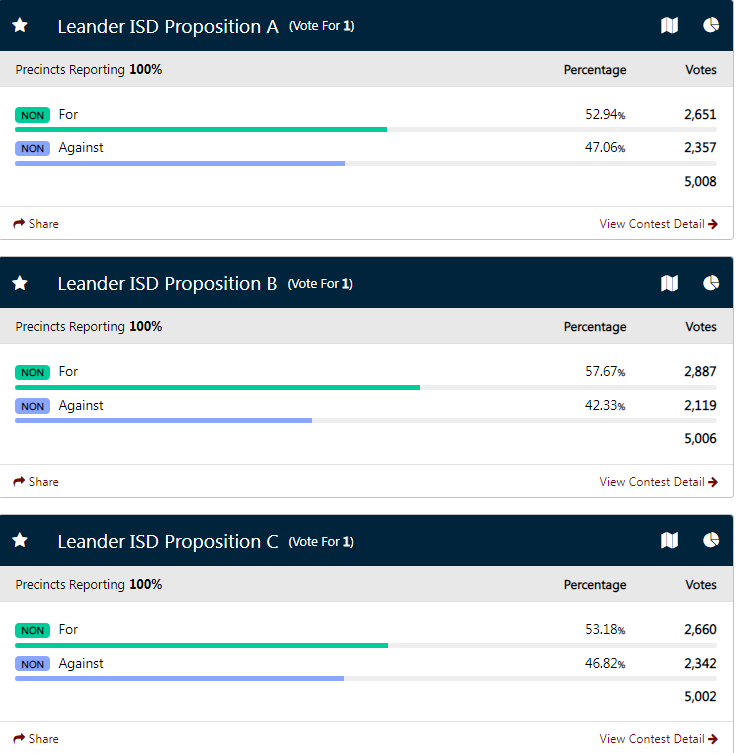
Bond propositions
The $698.3 million Proposition A passed with 62% of the votes, or 9,385 votes in favor of it.
The proposition seeks to fund a wide variety of school improvements and purchases, ranging from safety and security upgrades to renovating and building new schools and purchasing buses and vehicles. Notable items include building two new elementary schools to keep up with the district’s explosive student population growth that is projected to add 8,500 students over the next ten years, purchasing land for future school facilities and modernizing several campuses, including overhauling massive, aging HVAC systems on some campuses.
Travis County voters supported the bond package by a much narrow margin, with 54% of the votes supporting it compared to 66% of Williamson County voters supporting it.
It also enjoyed higher support from voters who cast a ballot during Early Voting than voters on Election Day, originally enjoying 64% of votes in favor of it among Early Voting ballots.
The $50.8 million Proposition B is trending toward passing with 65% of the votes, or 9,739 votes in favor of it.
This proposition is targeted at technology equipment and infrastructure upgrades, including computer network projects and replacing student and staff technology devices.
This proposition received the biggest support of the three propositions.
The $13.6 million Proposition C is trending toward passage with 61% of the votes, or 9,147 votes in favor of it.
This proposition is entirely focused on renovations to the Don Tew Performing Arts Center and South Performing Arts Center.
Reporting by Josh Moniz, Hill Country News
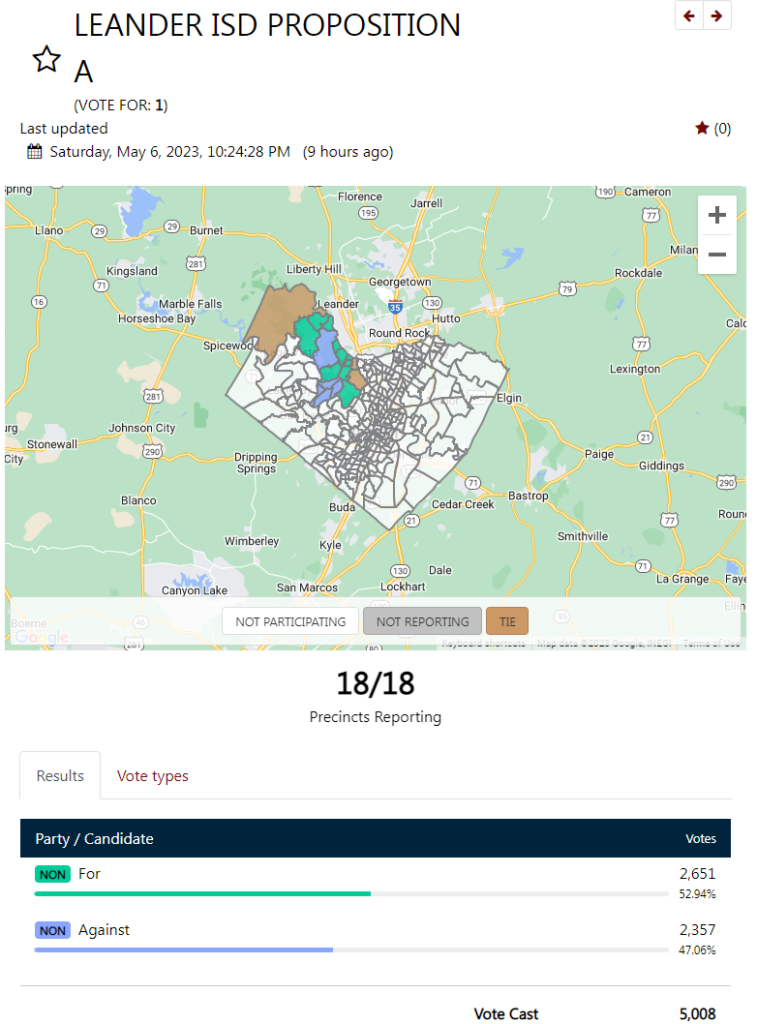
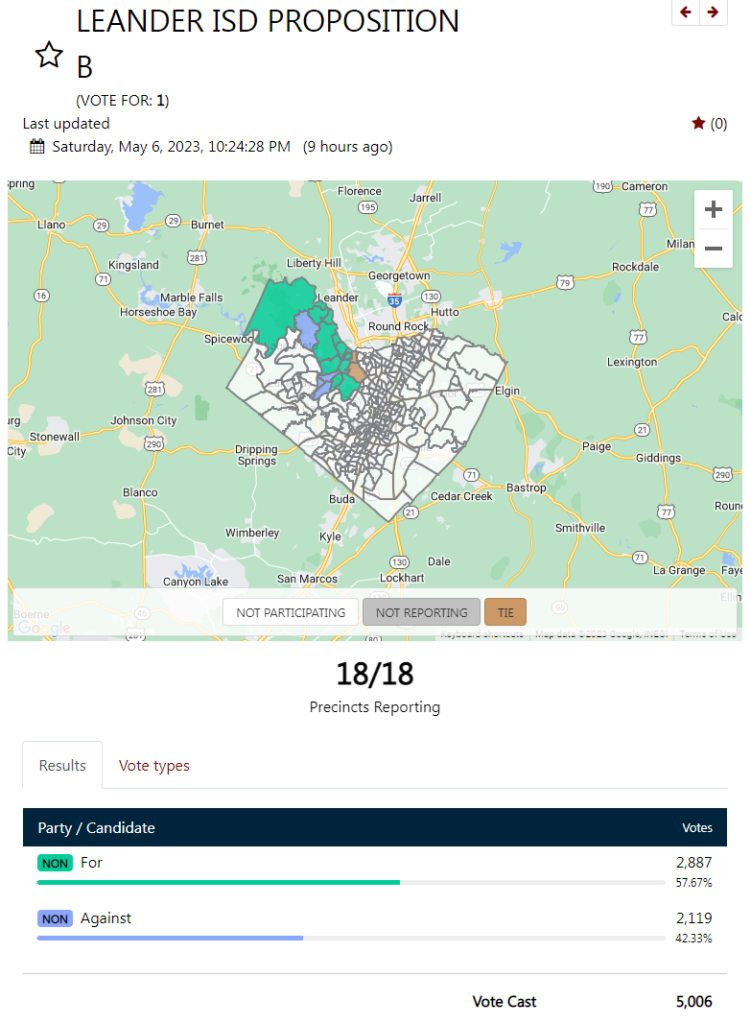
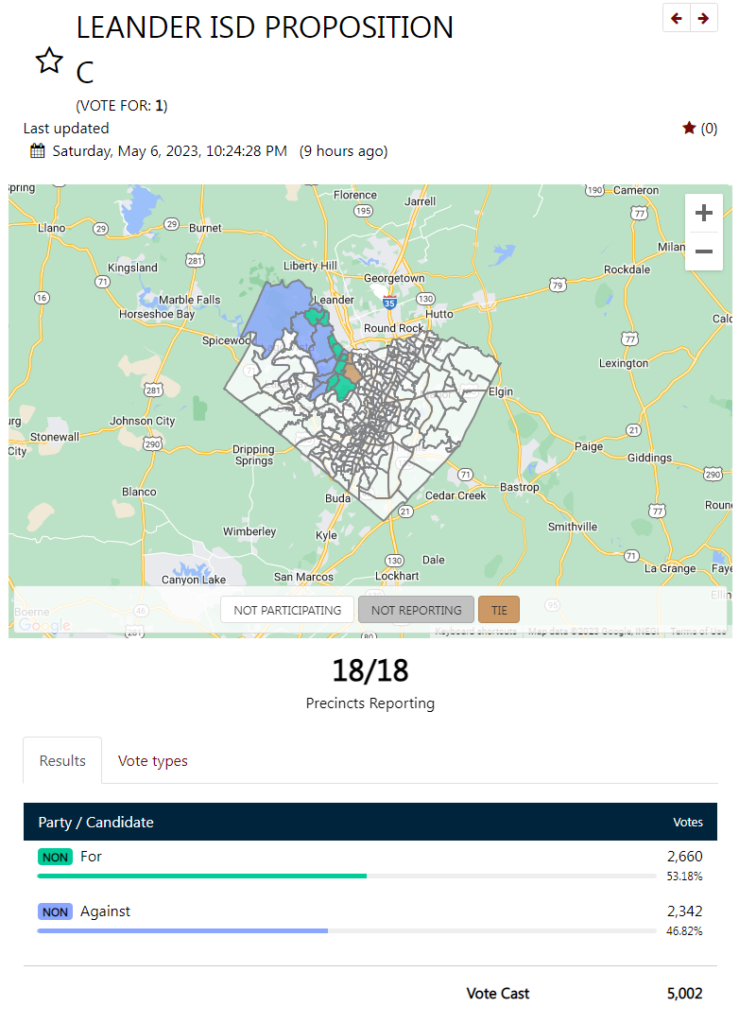
City of Austin Proposition A, which would expand oversight cruised to victory — 79% of voters supported the measure, according to unofficial voting numbers.
Proposition B, which would curtail citizen oversight and was backed by the city’s police union, was voted down by 81% of voters.
The two propositions were put on the ballot via petition, a not-uncommon practice in Austin. They are, on paper, the same — save for one prepositional clause. Prop A was backed by Equity Action, a progressive-leaning criminal justice nonprofit. Prop B was backed by Voters for Oversight and Police Accountability, or VOPA, a group that was financially backed by the city’s police union, the Austin Police Association.
Equity Action’s Prop A would give the citizen-led Office of Police Oversight more access to investigations and expand its role in fielding complaints and disciplinary decision-making.
VOPA’s Prop B would limit the office in investigations and its ability to field anonymous complaints.Prop B’s supporters say the oversight structure in Prop A is too expansive and, if implemented, would open the city up to a lawsuit.
The union stepped back from the negotiating table earlier this year after Austin balked on a four-year labor contract.
When it became clear Prop A passed and Prop B failed, Austin Mayor Kirk Watson addressed the tough road ahead on negotiating a longterm contract.
“This deeply felt conversation about public safety and policing in our community has raised a lot of challenging questions and absolutely no easy answers,” he said. “But we’ll keep talking in the hope of finding some common-sense solutions that serve all our community.”
Watson pointed out a bill in the Texas Legislature could invalidate the provisions in Prop A. He also noted some provisions within the measure — namely, expanded access to internal information about officers — could be a non-starter for the police union.
Just over 10% of voters within Austin city limits cast a ballot. That anemic turnout is typical of May elections, meaning just a sliver of the electorate decided the fate of the Office of Police Oversight.
Reporting by KUT’s Andrew Weber
